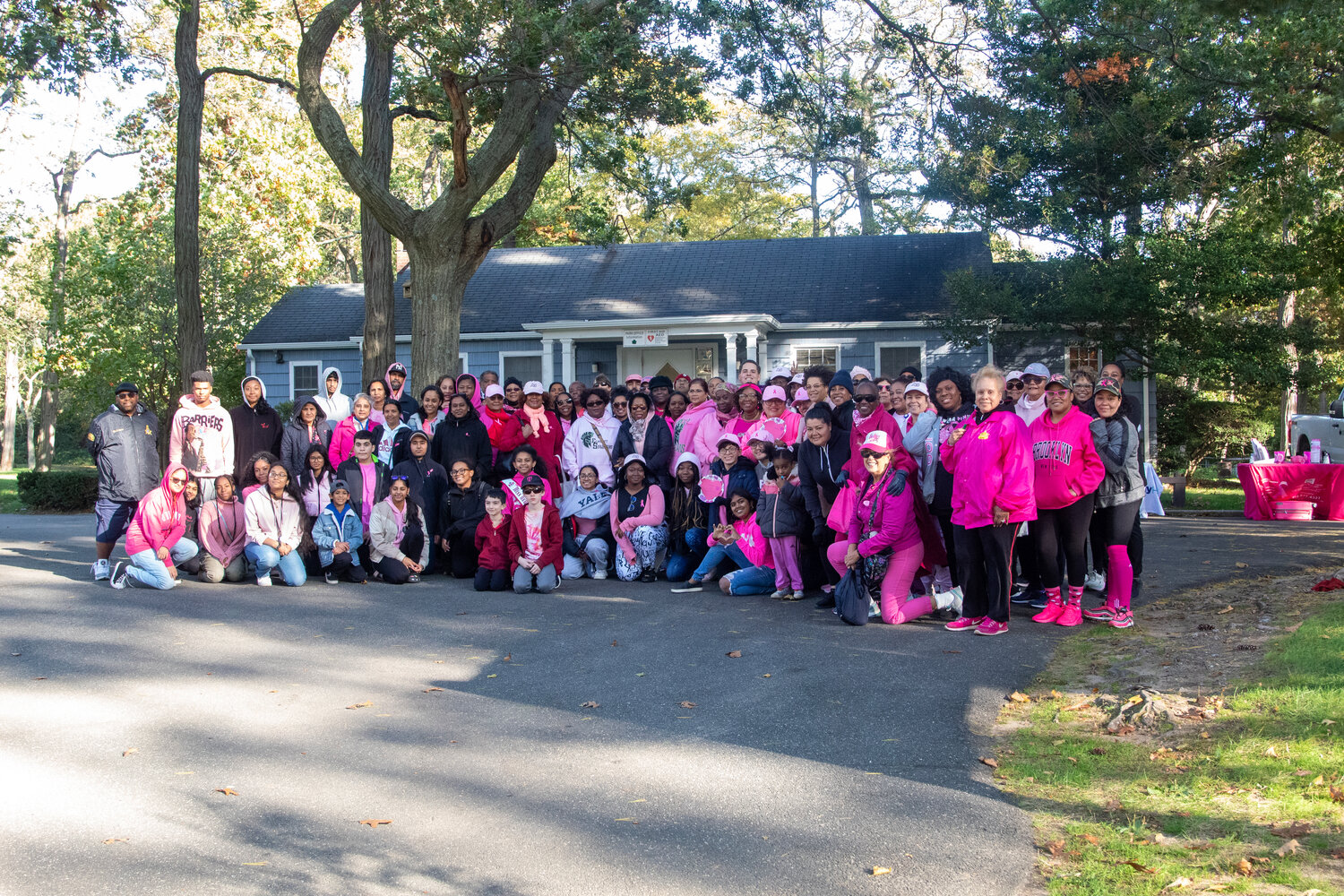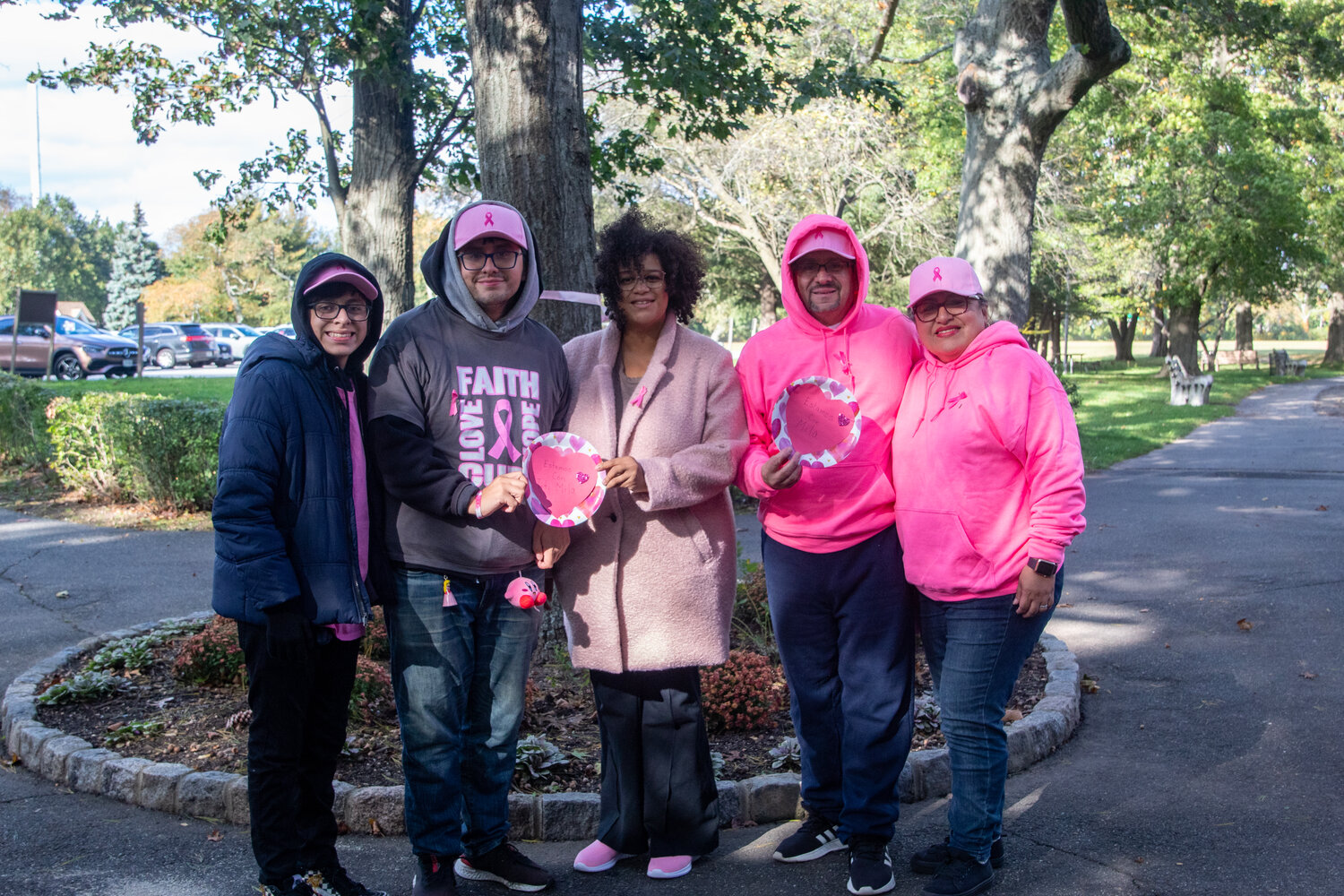Valley Stream breast cancer walk memorializes Elmont activist
As breast cancer awareness month comes to a close, the community gathered to raise awareness at the second annual walk and commemorated former Elmont school board member and local public health activist Dr. Elsy Mecklembourg-Guibert.
Mecklembourg-Guibert died at age 68 of the rare degenerative Creutzfeldt-Jakob disease in October 2022. The disease kills one in every million people each year and there is no treatment or cure.
She was born in Port-au-Prince, Haiti and was the first Haitian-American elected official in Nassau when she joined the Elmont school board in 2005. Her non-profit organization EMG Health Communications helped people access proper health care since it was founded in 1997. The organization hosted a breast cancer awareness event on an annual basis every October that focused on early prevention.
Michaelle Solages, assembly member, said that the group helped form conversations around breast cancer screenings, mammograms and making sure that women, especially women of color, had access to theses methods of early prevention.
“We named the walk after her because we just wanted to send the message to the community that, although she’s not here, her work still continues,” Solages said.
Community members gathered at Valley Stream State Park to participate in the walk on Oct. 22. After the walk, they were able to get information about breast cancer prevention and resources available to them.
“We want to make sure that women have access to early screening and know that there’s a system and network (to help them),” said Solages. “Even for those who have been through breast cancer and have survived and became warriors.”
Throughout 2023, the American Cancer Society estimates that nearly 298,000 new cases of invasive breast cancer will be diagnosed in the United States. That amounts to 119.2 cancers in every 100,000 women.
According to the state’s health department, there has been an average of 1,325 breast cancer cases per year in Nassau County between 2016 and 2020. This statistic amounts to 145.9 cases in every 100,000 women. The increased incidence across Long Island has been well documented since 2005 in a study known as the Long Island Breast Cancer Study Project.
While there are many risk factors for breast cancer that cannot be modified — such as race, age and family history — there are some preventative measures people can take to reduce risk. Through maintaining a healthy weight, getting enough exercise, eating a healthy diet and avoiding or limiting alcohol intake, people can mitigate their breast cancer risk.
Early detection is one way that people can identify developing cancer, which can lead to better prognosis and survival. This requires that patients adopt a screening schedule that works for them. Women who have dense breast tissue qualify for supplemental breast screening ultrasounds, which can help pick up cancers that might be missed on a mammogram. Per state law, women who are found to have dense breasts on their mammograms must be notified.
Cindy Cen, a breast surgical oncologist at Northwell Health, tells her patients that all average-risk women over 40 should start yearly mammograms. Exceptions to this guideline would apply to women with a family history of breast cancer that occurred before 50 years old or those with any prior history of radiation to their chest.
“We spend a lot of time talking about breast cancer awareness in October only,” Cen said. “But my hope is that the discussion persists year-round so that all women are informed about their risks and getting their mammograms done.”
Treatment for breast cancer has seen a general trend toward less invasive surgeries — Cen said that there have been more lumpectomies performed than mastectomies. A lumpectomy removes only the tumor and a margin of surrounding tissue in the breast, whereas a mastectomy removes the entire breast.
As for the field of medical oncology, there are advances being made all the time in terms of chemotherapy and immunotherapy options. Cen said that testing helps medical professionals decide which patients would most benefit from chemotherapy, while also identifying patients with the lowest risk and sparing them from needing chemotherapy.

 50.0°,
Overcast
50.0°,
Overcast 













